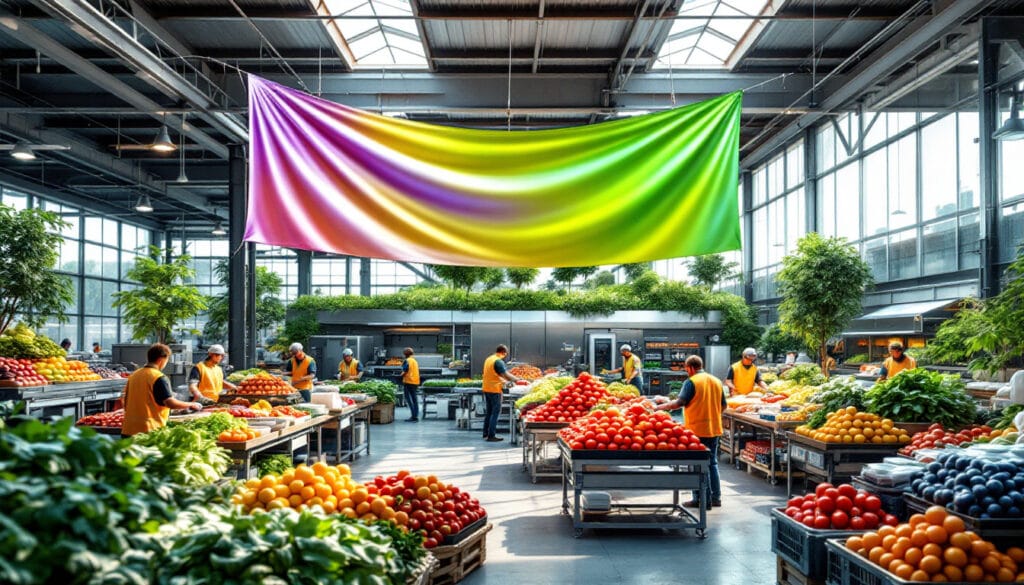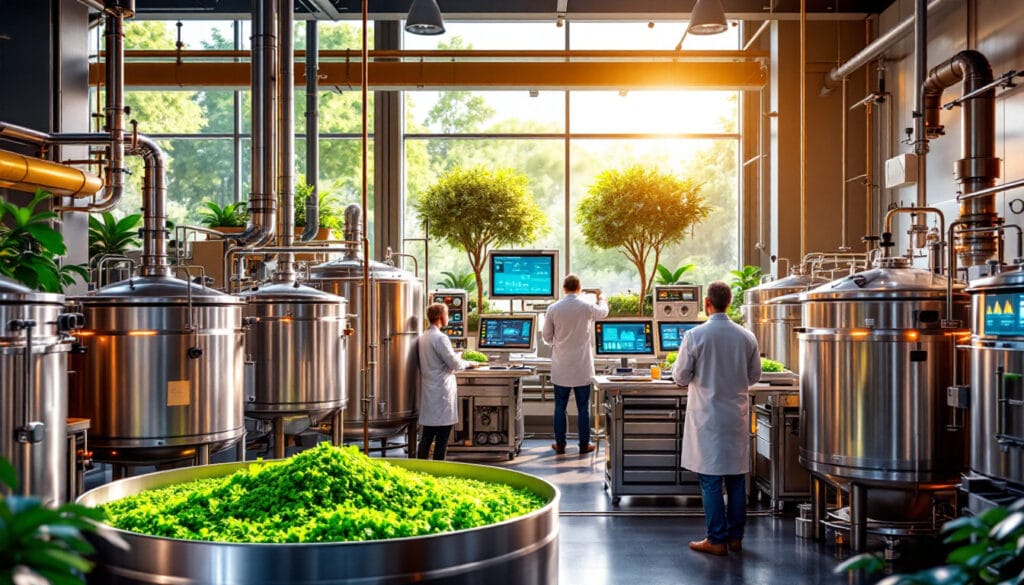Industry 4.0 redefines production methods by merging digital innovations and advanced technologies. In this context, smart packaging emerges as a pioneer, integrating artificial intelligence, sophisticated sensors, and Internet of Things devices to transform the supply chain. With these new capabilities, manufacturers benefit from improved traceability and enhanced security, while optimizing product quality and enhancing their brand. This revolutionary advance paves the way for a new era of efficiency and transparency in the industry.
In the framework of Industry 4.0, smart packaging plays a crucial role in transforming industrial processes. By integrating advanced technologies such as artificial intelligence, cloud computing, and the Internet of Things, these innovative solutions enhance the security and efficiency of supply chains. Sensors and IoT devices allow real-time monitoring of product characteristics, thus contributing to improved quality control and product traceability. Additionally, packaging options with chemical indicators and QR codes offer more transparency to consumers and combat counterfeiting. This digital approach promotes product security, optimizes logistics, and strengthens consumer trust. Connected packaging solutions also enable more direct and interactive communication with customers through NFC technologies, making the user experience more enriching.
Table des matières
Togglethe impact of smart packaging in industry 4.0
In the era of Industry 4.0, the integration of smart packaging redefines the standards of industrial efficiency. With technologies like artificial intelligence, Internet of Things, and robotics, these packages can now monitor, analyze, and adapt to their contents in real time. This not only results in a substantial reduction of risks related to human errors but also improves product tracking throughout the logistics chain. This digital transformation encompasses innovative solutions that optimize operations and enable faster returns on investment for businesses. Associated digital tools, such as the connected digital package, provide enhanced visibility and control, reinforcing transparency and customer satisfaction.
key technologies of smart packaging
The development of sensor technologies and tools based on the Internet of Things is opening new possibilities for smart packaging. Chemical sensors, for example, play a crucial role in detecting changes such as pH or humidity levels, thus ensuring the freshness and integrity of food products. RFID systems integrated into these packages provide real-time traceability, which is essential for combating theft and counterfeiting. Meanwhile, biosensors monitor signs of degradation or contamination, ensuring increased food safety. To discover how AI is reinventing this sector, check out this article on artificial intelligence and packaging.
competitive advantages of smart packaging
The adoption of smart packaging provides notable advantages to companies wishing to modernize their manufacturing processes. Thanks to these innovations, organizations improve the management of their supply chains by optimizing visibility and reducing bottlenecks. This increased level of transparency is not only vital for manufacturers seeking to enhance consumer trust but also allows them to be more responsive to product recalls. The use of QR codes on packaging provides consumers with immediate access to detailed product information, strengthening their engagement and loyalty. In this context, Industry 4.0 proves to be an invaluable opportunity for companies looking to innovate and differentiate themselves in the market. For a deeper dive into trends, visit this page on trends in the packaging industry.
Celabor fait le point sur législation Emballages actifs et Emballages intelligents Séminaire conservation Wagralim pic.twitter.com/gBSqmu5V1t
— Wagralim (@wagralim) October 27, 2016



